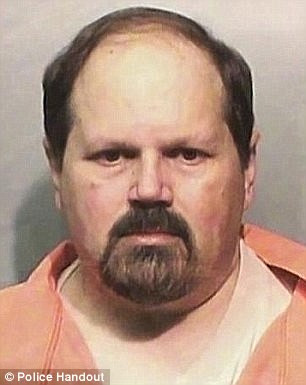How this man rigged the lottery: Mastermind programmer who 'won' millions faces 25-year sentence
After 'winning' the US lottery seven times, Eddie Tipton's secret fixing scheme was discovered.

For a decade, computer programmer Eddie Tipton reliably showed up for work at the central Iowa office of the Multi-State Lottery Association and earned the confidence of his co-workers, a team of technicians entrusted to build computers used to randomly pick numbers for some of the most popular lottery games in the US.
Little did they know that while they worked to uphold the integrity of lotteries, Tipton had secretly installed software that allowed him to pick winning numbers and was collecting money from jackpots in multiple states.
"The depth of his deceit is dumbfounding," Assistant Iowa Attorney General Rob Sand said in court filings seeking a 25-year prison term for Tipton when he is sentenced Tuesday in Des Moines. "Such crimes cannot be answered without a prison sentence."
After hitting the first ill-gotten jackpot in Colorado in 2005, Tipton began building himself a 4,800-square-foot (446-sq. meter) house with a movie theatre and gym on 22 acres (9 hectares) with a pond outside of Des Moines. Over the course of the next six years, Tipton would go on to fix six more lottery games across five states, netting more than $2 million (£1.55 million). Yet his employer trusted him so much that he was promoted in 2013 to head information security, placing him in charge of protecting the very lottery computer systems he had been cheating.
Tipton pleaded guilty in June after denying wrongdoing since his 2015 arrest. His attorney is seeking a sentence of no more than three to four years in prison, arguing that his client is unfairly being treated far more harshly than other people involved in the scheme.

Tipton admitted to masterminding the lottery rigging scheme as part of a plea deal reached with Sand to resolve charges in all states from which he had won jackpots. Tipton agreed to detail for authorities how he altered the computers, reveal all the games he had fixed and who helped him.
Sand said Tipton, in a two-day interview, answered all the questions, but often minimized and rationalized the criminal nature of his actions and their effects.
Tipton admitted fixing the Colorado Lotto in November 2005, Megabucks in Wisconsin in December 2007, 2by2 in Kansas and Hot Lotto in Iowa in December 2010, and Hot Lotto in Oklahoma in November 2011.
Tipton recruited his brother Tommy Tipton, a former Texas judge; a friend, Texas businessman Robert Rhodes; and others to buy tickets using numbers he provided.
Tommy Tipton is serving a 75-day jail sentence in Texas after pleading guilty in June to conspiracy to commit theft by deception. Rhodes, of Sugar Land, Texas, pleaded guilty to a computer crime and will be sentenced on Aug. 25.
Eddie Tipton's attorney, Dean Stowers, said in court documents that Tipton was bullied by Sand into a plea agreement that requires him to repay the full $2 million in ill-gotten winnings to the four states but claims that Tipton personally only ended up with no more than $351,000 (£272,000).
Tipton admitted as part of his plea that in 2005 he added two extra routines to the computer coded that generated the random numbers, allowing him to predict numbers on specific drawing days.
Sand said Tipton's actions corrupted the entire industry and destroyed the promise to players that all tickets have an equal chance to win, though his disclosures may help lotteries improve security systems.
The Multi-State Lottery Association provides computers for lotteries in 33 states the District of Columbia, Puerto Rico and the U.S. Virgin Islands. The computers are designed to randomly draw numbers in several games, including Powerball, Mega Millions and Hot Lotto. Players have sued the association alleging they were defrauded by Tipton's scheme.
Tipton was caught after buying a winning ticket for a Hot Lotto ticket in Iowa in December 2010, even though he was prohibited from playing the lottery. He asked Rhodes to help him collect the jackpot, which was worth $14 million (£10.8 million) after taxes. Rhodes recruited others to attempt to anonymously redeem the ticket, but Iowa won't pay jackpots without proof of who bought the ticket — a policy Sand credits with uncovering Tipton's multi-state lottery rigging scheme.
Stowers alleges that Rhodes stole money from his client, that people who haven't been charged stole numbers from Tipton's brother to win the Colorado Lotto, and that Tipton never received any of the Oklahoma winnings. He said the lotteries have refused to pursue those who received the money. He also called sentences for Rhodes and Tommy Tipton "a slap on the wrist" compared with what Sand is seeking for Eddie Tipton.
"Defendant has clearly been left holding all the financial liability while the parties with the money are largely walking away untouched and unscathed with the states lifting not a single finger to recover the monies they received," Stowers wrote.
Sand said a lengthy prison sentence for Tipton would serve as a deterrent to anyone else who might be considering such crimes.
© Copyright IBTimes 2025. All rights reserved.





















